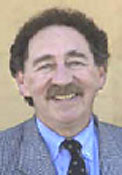By Tom Volgy
Arizona Daily Wildcat
Tuesday September 30, 2003
Those of you who pay attention to these things may have noticed that Tucson is in the midst of elections for Mayor and City Council. Then again, you may have missed it. It's not that local elections aren't important. Quite the contrary: The rules, regulations and policies of city government have important consequences for your lives the second you step off campus. In addition, while you may have little ability to influence the course of national or international affairs, you can have a huge impact on the local community by helping to elect quality people to local government.
Still, election to office at the local level, and particularly in Tucson, is quite unlike what you see at the national level, where high-priced consultants, expensive media advertising and huge special-interest dollars rule campaigns. It used to be so at the local level as well, but scores of cities enacted campaign finance reform laws and those laws fundamentally changed the nature of campaigning, elections and who gets to buy ÷ or not buy ÷ city hall.
Tucson was the first city in the nation that, by a vote of the public, amended its charter and instituted campaign finance reform. In Tucson, if you agree to limit your spending to a specific number of cents per registered voter, you raise half your limit and the other half is donated to you, anonymously, by the public. For a mayoral campaign today, this means that you limit your spending to no more than $142,000, and you only need to raise one half of that.
 |
|
Tom Volgy
political science professor
|
|
|
The practical consequence of this move is that campaigning has changed dramatically. Those of us who run cannot afford to do tracking polls or hire armies of
consultants, and we depend on volunteers and grass roots campaigning to get the job done. It is much harder to run this way, but it is worth it. We no longer have to depend on the deep pockets of a few wealthy individuals or special-interest groups. Campaigning at the local level has become more democratic and much closer to the public than before these reforms were enacted.
In my case, apart from having a full-time job and family responsibilities, campaigning takes up much of my waking time ÷ actually, also a good part of my sleeping time. To date, I've done roughly 90 "coffees," gatherings of people at someone's house where we talk about the issues facing Tucson. "Coffees" are a crucial source of generating support, word-of-mouth discussions about the campaign, volunteers and enthusiasm. I've done them through the four corners of Tucson, with just about every segment of the community. We are aiming at doing 120 "coffees" altogether before the end of the campaign. That's a daunting task, but these events are unique in that instead of clichˇs and slogans, people actually engage in discussions about what Tucson needs and what we need to do to solve its problems.
Of course, "coffees" are only one dimension of the campaign. In addition, there is a huge "walking" effort going on. Through our volunteers, we are walking every day, going from home to home, passing out literature and engaging voters, reminding them of the importance of the campaign and the need to vote.
And now the "forums" have kicked in. These are public appearances with my opponent before a large variety of audiences where we engage in debate over all sorts of topics concerning Tucson. By the end of October, between forums, coffees, walks, phoning and other forms of voter contact, I should have little voice left and even less energy.
But this is what campaigning was meant to be in a democracy: A draining experience on the candidate free of the special interests that control the money flow and the recruitment of candidates. Hopefully, in Tucson we will do better because of this difference. On the other hand, watch for the emergence of so-called "independent efforts" during the last five weeks. They are meant to break the reforms Tucson had instituted and to restore the power of money in elections. If they succeed, we will only have ourselves to blame, and then elections in Tucson will look like national politics once more.
Tom Volgy is a political science professor and Democratic mayoral candidate. He can be reached at letters@wildcat.arizona.edu.

